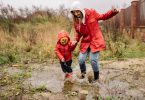In an effort to help parents keep kids up to date and survive quarantine, I have compiled advice from teachers and over 80 FREE online resources for homeschooling parents.
With the recent COVID-19 pandemic (a.k.a. Coronavirus), people all over the world are being self-quarantined. This means that parents are spending two to six weeks at home, with their kids. What’s a parent to do? Perhaps your kids are like my ADHD kid who forgot to bring home anything from school. Or perhaps your kid is like my anxiety kid who brings home EVERYTHING … but I still have no idea what they are learning next.
While many schools (especially private schools) are sending home assigned homework for kids to keep up skills and be ready to get back to work when school reopens, schools in my area are not. Now if you have a kid with learning disability, two to six weeks off school, with no learning, reading or writing is going to have a greater impact when they do actually go back to school.
Advice from Teachers
In an effort to help my kids (and keep my sanity for the coming weeks), I reached out to my teacher friends. Here is the advice they gave. It’s important to note this is practical advice is for all ages and levels, but you know your kids best.
- Have conversations with your kids. As much as you might not be sure of what is the latest news, your kids feel the same. You can read, watch and learn what is happening. Now is the time to be present and check in with them daily to see if they have any questions.
- Create a schedule. Daycare or school has made kids used to a set time when things happen and now they are being hauled out of their regular schedule that provides them safety and comfort. A schedule will also allow your anxious children to feel more in control knowing what to expect. Get your kids up at the same time as they go to school. Get them dressed and ready to start their day. You’ll be happy you did once they go back to school.
- Learning doesn’t have to be super strict and structured. A schedule is great to keep consistency, but focus on the things that your kids enjoy learning (or what you enjoy teaching) and throw in a few new things. It can be something as simple as downloading a constellation app and sitting outside and learning with your child.
- Keep up with the basics: reading, writing & math. No matter what age your children are they can work on something that is their level. Read a book to younger kids, middle school kids can write in a journal or practice math timetables. If your kids are older work on multiplication AND division. Ask them what is 4 times 3, but also 12 divided by 3. Write up a few simple equations for them to do and everyone they get right they get a candy. This is also a good time to review any areas your child may have had problems with earlier in the year.
- Create your own ‘Genius Hour/Passion Project’. Use the next few weeks to keep busy with working on a project, developing a hobby or anything your kid is passionate about. Ask your teacher to share it when you go back.

My suggestion is to use this time to try WorldSchooling your kids. Worldschooling is an educational movement that recognizes that a student can receive education experiencing and interacting with the world around them. For many families this involves traveling together and using the journeys to enhance their child(ren)’s education. I am a huge fan of this, but since travel isn’t possible, I’m using what I have at home. We live in Canada, so this week we are learning about how our country was formed and trying our hand at tapping some maple trees. Check out the homeschooling resources below where you can virtually visit museums, countries and more!
Also, bring back the ‘old-school’ classes no longer taught like home economics, career planning, wood shop and more. My kids are planning the meals for the week and each one is responsible for checking to make sure we have the supplies, creating the menu, timeline, etc.
Free Online Resources
So you have a schedule, plan …now what? Parents looking for online resources for homeschooling can be overwhelmed by the MANY sources and websites available. I started going through the ‘free’ resources and quickly saw ‘free’ doesn’t always mean ‘free’. Many sites mean free for a certain time and then you are charged. Or you have to go through a lengthy sign-up process. Others are free but meant for teachers and difficult for parents to understand how to use them/what level. Below is the resources I found that are free and easy to use. Best of all, most of these free online homeschooling resources kids can do themselves!

Math
My kids favorite free online math program is Prodigy. You create an avatar and battle monsters where you cast spells by answering math problems. It’s a fun Zelda-ish world where kids can choose the grade level they feel comfortable with and when you get an answer wrong they help you along without big penalities.
AbcYa has math and word games for k to 6+.
SplashLearn. There is a sign up, but it’s fairly simple and no credit card info.
Zearn is a top-rated K-5 curriculum builds deep understanding and a love of learning math for all students.
If you need something more in-depth Delta Math is a free tool for teachers. You can look up where your child is in the year and figure out what they may need to learn.
Science
Science Friday offers lessons, stories and podcasts in everything from Earth Science, Physics and Biology. It also has a feature highlight on the coronavirus.
Visit Mars: Take a 360 degree look at the surface of Mars
Kids ask the craziest things. What do you do when you don’t know all the answers? With puzzles, videos and games How Stuff Works can tell you all you need to know about science, health animals and more. They also have segments like how long can a virus live on surfaces and how social distancing works.
Mystery Science offers a bunch of mini (15-30mins) to full (35-90 mins) lessons. Suited for k to 5th grade, even if your kids are a bit older, they will find it fun. Some funs ones are were dragons ever real & why do frogs say ribbit and timely subject of how does hand sanitizer kill germs?
National Geographic has cool stuff, magazine extras and animal facts. Exploring science topics for grades K to 5. Provides activity prep, exploration of the idea, hand-on learning and a wrap up.

The Happy Scientist has great short learning and science experiments for all levels
NASA Kids Club has a TON of activities for learning
Learn about Polar Bears (includes video and virtual tour) at Discovery Educaation.
The Canadian site FarmFood 360 offers 11 Virtual Tours of farms from minks, pigs, and cows, to apples and eggs.
The American Chemical Society has ChemMatters magazines, targeted for high schoolers, available online. In addition to chemistry, there are article that are biographies of chemists, and historical articles.
Note: See more science and learning opportunities with the virtual tours in the Worldschooling section.
Reading/writing
Starfall is great for pre-k and primary kids.
Kids find it hard to pick a topic to write about. Think Written has 300 prompts/ideas to give them a subject. Or they can write about a picture. The National Geographic has a Photo of the Day so they will never be short of subjects.
Want Oprah to read you a story? Storyline Online was created by the SAG-AFTRA Foundation. It offers free storytelling videos and resources, with a wide choice of picture books read-aloud by known actors.
Squiggle park offers interactive reading for kids 8 and under or Dreamscape for kids aged 8 to 15.
Science learning for all ages from EduMedia, including older kids/highschool.
AbcYa has word games and math for k to 6+.
Can’t go to the library? Older kids will love ProjectGutenberg 60,000 free ebooks.
Tumble book library has a bunch of audio books, which is great for kids with learning problems.
Geography/History
For those in Quebec elementary school this is a great free online resource for following is an amazing website for the géo-histoire program.
Another fun free online resource is the Canadian Encyclopedia that offers a daily update of what important historical events happened on today’s date.
History for kids has social studies & history learning with quizzes/worksheets. But Canada is not one of the countries explored.
Curio.ca gives streaming access to the best educational content from CBC and Radio-Canada including documentaries, archives and more.
Culture Grams explores the provinces of Quebec.
French
Two sites for French audio books are The French Experiment and The Fable Cottage.
Educational games and resources in French can be found at Pepit and logicieleeducatif.fr.
Another great resources for multiple languages is Duolingo.
Curio.ca gives streaming access to the best educational content from CBC and Radio-Canada including documentaries, archives and more.
Social & Emotional skills
Soar with Writing offers emotional intelligence: self-awareness, self-management, responsible decision-making, social awareness and relationship skills.
Minecraft Education Edition uses a game-based learning platform that promotes creativity, collaboration, and problem-solving in an immersive digital environment.
Coding
W3Schools has great coding exercises in java, html and other programs.
Code Academy does require a sign-up, but it’s worth if your kids are interested in coding.
Hour of Code. A HUGE selection of courses that you can do within an hour. Great thing is many kids have already done these in school.
Miscellaneous
Khan Academy offers grade level math, science & engineering, arts & humanities, computers and more. They recommend schedules for all ages, links to yoga and offer adaptable content. It goes form kindergarten to college and best thing is that t’s free and you are supporting a not-for-profit organization.
Scholastic ‘Learn At Home’ site offers daily projects. They started with 5 days and will add 3 weeks more projects. Offering 3-5 areas of interest a day, this could essentially be a one-stop solution for parents.
IDEA.org.uk allows older kids to do mini courses in coding, research, social media and more. As an added bonus it’s self driven and can get a certificate from Buckingham Palace!
Hippo Campus has over 7,000 videos in 13 areas. Great for older kids to use themselves.
Kiddle.com is a ‘kid-focused’ search engine. Kids can search for whatever project they are working on and will get links to only sites with kid-friendly content.
Seussville offers word challenges, games and videos
The kids magazine Highlights offers games, jokes, exploration (including science) and my favorite, hidden pictures. You can also download the app for more.
Toronto virtual public library has ton of resources, including Britannica School, Pebble Go and Canadian Points of View.
PBS offers interactive videos for elementary and secondary, including explaining content on coronavirus
Kids are home is a great time for them to work on typing skills. Typing Club is fun and they can do the exercises on their own.
Free games and resources with progression on skills.
Worldschooling (virtual field trips)
San Diego Zoo – you can learn about the different animals, factual information with videos and games. Did you know a herd of Rhinos is called a crash? You do now!
You can also check out a bunch of San Diego Zoo live feeds of their animals:
Like live cams, check out these:
Montery Bay Aquarium – I love the sea otters!
Georgia Aquarium also has live cams:
Visit Yellowstone National Park – use the interactive map to see the various areas of the 3,500 sq.-mile wilderness. From dramatic canyons, rivers, mud volcano, hot springs and of course Old Faithful. The park is also home to hundreds of wild animals.
Visit the U.S. Space and Rocket Museum in Huntsville, Alabama
Learn about aerospace innovation with a virtual field trip to Johnson Space Center in Houston, Texas

Learn about what makes Israel a popular tourist destination videos highlighting all the gorgeous places in Israel
Popular spring break location Mexico has a ton of learning online like a virtual tour of Mexico City and the National Museum of Anthropology.
If some of your older kids are getting a bit stir crazy find some educational videos like ‘what is every country in the world Best At?’
Many museums offer virtual tours. Here are some popular ones:
Visit the Louvre in Paris.
British Museum, London virtual tour of history through time.
National Museum of Modern Contemporary Art (MMCA), Seoul virtual tour allows you to explore contemporary art from Korea.
Explore the 3 floors of the Boston Children’s Museum.
National Gallery of Art, Washington, D.C. features two online exhibits through Google: 1) American fashion from 1740 to 1895 & 2) works from Dutch Baroque painter Johannes Vermeer.
The J. Paul Getty Museum, Los Angeles virtual tours are suited for older kids
Van Gogh Museum, Amsterdam virtual tour shows you his artwork and two online exhibits of Which Books did Vincent can Gogh Read and Vincent van Gogh’s love life.
For younger kids (8 & under) check out PBS Wild Kratts for interactive games, videos, episodes and more. The Metropolitan Museum of Art, from New York, MetKids site has an interactive ‘Time Machine’ allowing kids to explore their collections with fun facts and videos.

Do you have any free online resources we didn’t list? Please share below in the comments.








